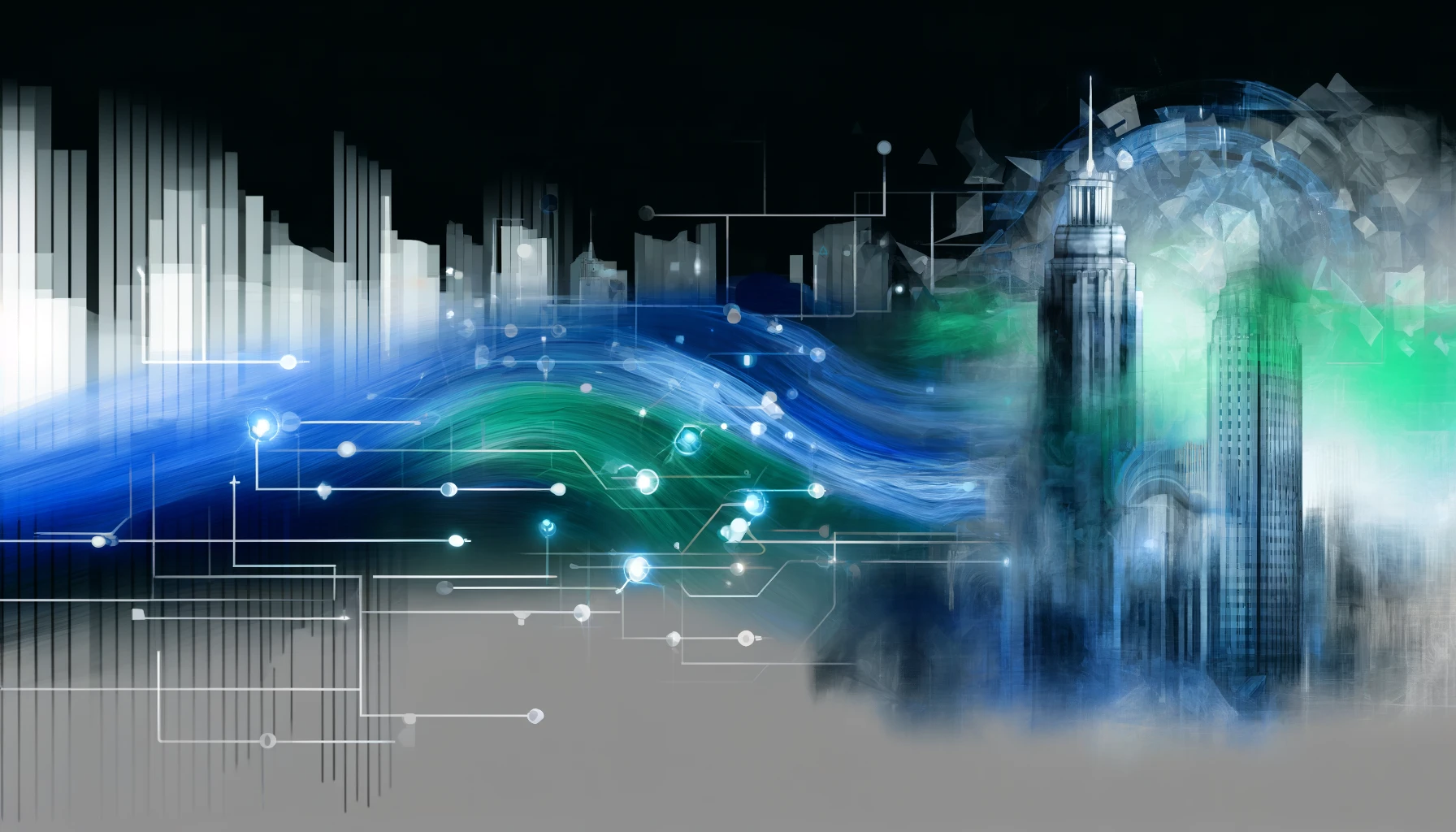The landscape of Wall Street is undergoing a seismic shift as artificial intelligence (AI) begins to permeate through the veins of investment companies. Recent reports, including insights from insiders at major banks like Goldman Sachs, Morgan Stanley, and Deutsche Bank, reveal a brewing storm: for many analysts (especially junior analysts), AI may bring an employment apocalypse.

Charles Stross, a prolific science fiction author, often explores the connection between advanced technology and economy in his works. Like many other science fiction writers, he often speculates how technological innovations can disrupt established systems — and what the consequences are for humanity. The case of AI in investment is an excellent example of that.
In one of his books, “Accelerando”, Stross portrays a world where human economic activities and societal structures are profoundly altered by autonomous technologies like AI. The human mind alone can’t keep up with all the changes AI technologies are bringing. In fact, in the book, technology is not only improving but doing so at a rate that outstrips the ability of organizations to adapt in traditional ways.
Today, science fiction crosses into the real world. In fact, according to sources quoted by the New York Times, that’s pretty much happening already in some parts of the finance sector.
Already becoming a reality
The new generation of junior analysts may be under threat as AI can perform financial modeling, risk assessment, and data analysis far quicker and more accurately than humans. The consequence is a reduced need for entry-level positions that traditionally served as the training ground for the next generation of financial leaders.
Speaking with the Times, Christoph Rabenseifner, the chief strategy officer for technology, data, and innovation at Deutsche Bank, summarized it thusly: “The easy idea is you just replace juniors with an AI tool.” He noted that senior human staff will still be necessary.
On the surface, it might seem challenging to sympathize with Wall Street professionals, often seen as the mischievous titans of the financial world. Yet, the AI revolution primarily threatens those at the start of their careers—junior analysts—who are most vulnerable to being replaced by algorithms that can perform tasks in seconds that would take humans hours to complete. This transition could lead to lower salaries and reduced hiring, as AI assists or even replaces the functions typically performed by human analysts.
As artificial intelligence continues to permeate the financial sector, traditional roles are being redefined, especially those involving market predictions and trading. Algorithms can now analyze vast datasets rapidly, identifying patterns and executing trades at speeds no human can match. This technological shift is particularly evident in how AI systems manage derivatives trading, such as when they short futures to hedge against market downturns or capitalize on predicted declines. This capability has reduced the need for manual intervention by traders and analysts, leading to a significant reshaping of job functions on Wall Street.
All major companies are, of course, aware of this, but most seem to be downplaying the change. For instance, a Goldman Sachs representative told Business Insider that the bank is in the “early stages” of exploring AI technology, and that despite being “pleased” with the results, it has no plans to reduce hirings due to AI. That may be only true for now.
However, other companies seem to lean more into AI.
In his annual letter to shareholders, JPMorgan boss Jamie Dimon said AI has the potential to “reduce certain job categories or roles.” It’s not clear exactly what kind of roles he meant, but presumably, analysts who do lower-level work (like juniors) are most at risk.
But as is always the case, this doesn’t necessarily have to be a bad thing. It could end up freeing up junior analysts to work on more interesting things.
“AI will enable us to do tasks that take 10 hours in 10 seconds,” JPMorgan’s head of investment banking Jay Horine told the Times, speaking of Wall Street analysts. “My hope and belief is it will allow the job to be more interesting.”
But as Wall Street stands on the brink of an AI-driven transformation, this positive turn can only happen if industry leaders, policymakers, and educational institutions anticipate these changes and start preparing for them. In a way, that’s why we have science fiction. Stross’s work invites us to consider the transformation of professional identity in the face of technological upheaval—so we can avoid the pitfalls of uncontrolled technological advance and ensure a future where human and artificial intelligence coexist productively, enhancing both our economic systems and individual roles within them.
As routine analytics and risk assessments migrate to algorithms, the role of the analyst is pushed towards areas that AI struggles to encompass—creative problem-solving, ethical judgment, and strategic oversight. There’s still work for humans to do.
Was this helpful?



